Where history meets the future
An eye toward collaboration and innovation helps one professor bring positive change to higher education
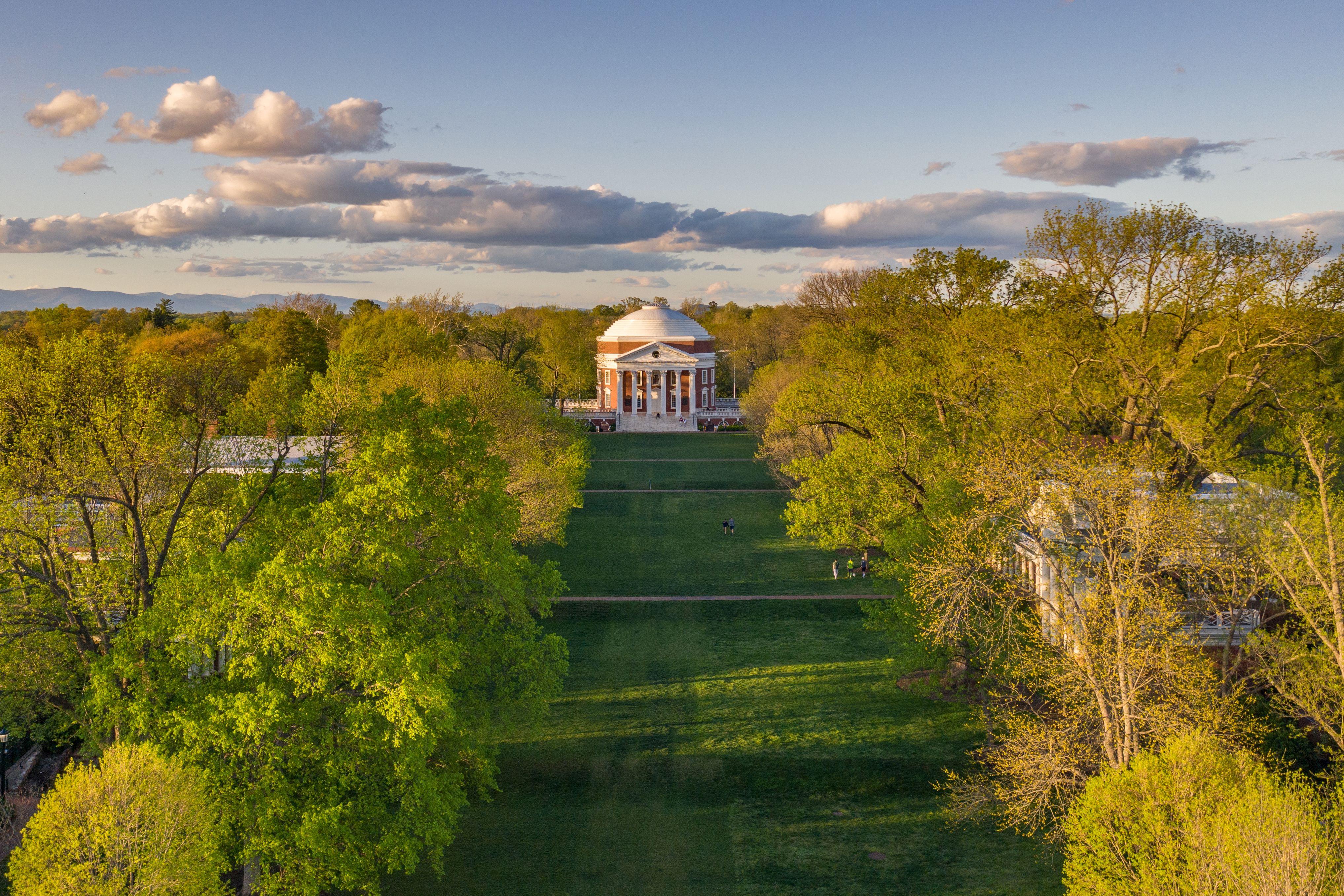
When special collections librarian Randi Flaherty decided to expand one of her research projects into a seminar for the University of Virginia School of Law, she knew exactly who to call on for help. Flaherty, who oversees special collections at UVA Law Library, had been exploring the history of the law school property, a section of UVA’s campus known as North Grounds, and was eager to bring her work into the classroom.
Centuries before UVA purchased the land on which the law school now sits, it was home to a long list of inhabitants, including farmers and enslaved laborers. It also served as a Civil War encampment and was the site of a poorhouse, where impoverished, sick, and orphaned residents lived and labored. The seminar Flaherty had in mind would require law students to investigate the historical intersections of slavery, race, land use, and law.
Enlisting the expertise of a law professor may have seemed an obvious choice to some, but Flaherty zeroed in on a rising star in UVA’s history department. She invited Christa Dierksheide, a noted Early American historian and public history advocate, to help her develop and co-teach the course.
Dierksheide, who joined UVA’s faculty in 2019, has been making a name for herself over the last three years, emerging as a formidable voice on the life and legacy of Thomas Jefferson, the Founding Era, and race and slavery—work that is particularly meaningful on a campus that has grappled for some time with how exactly to tell the story of its founder and the nation’s third president.
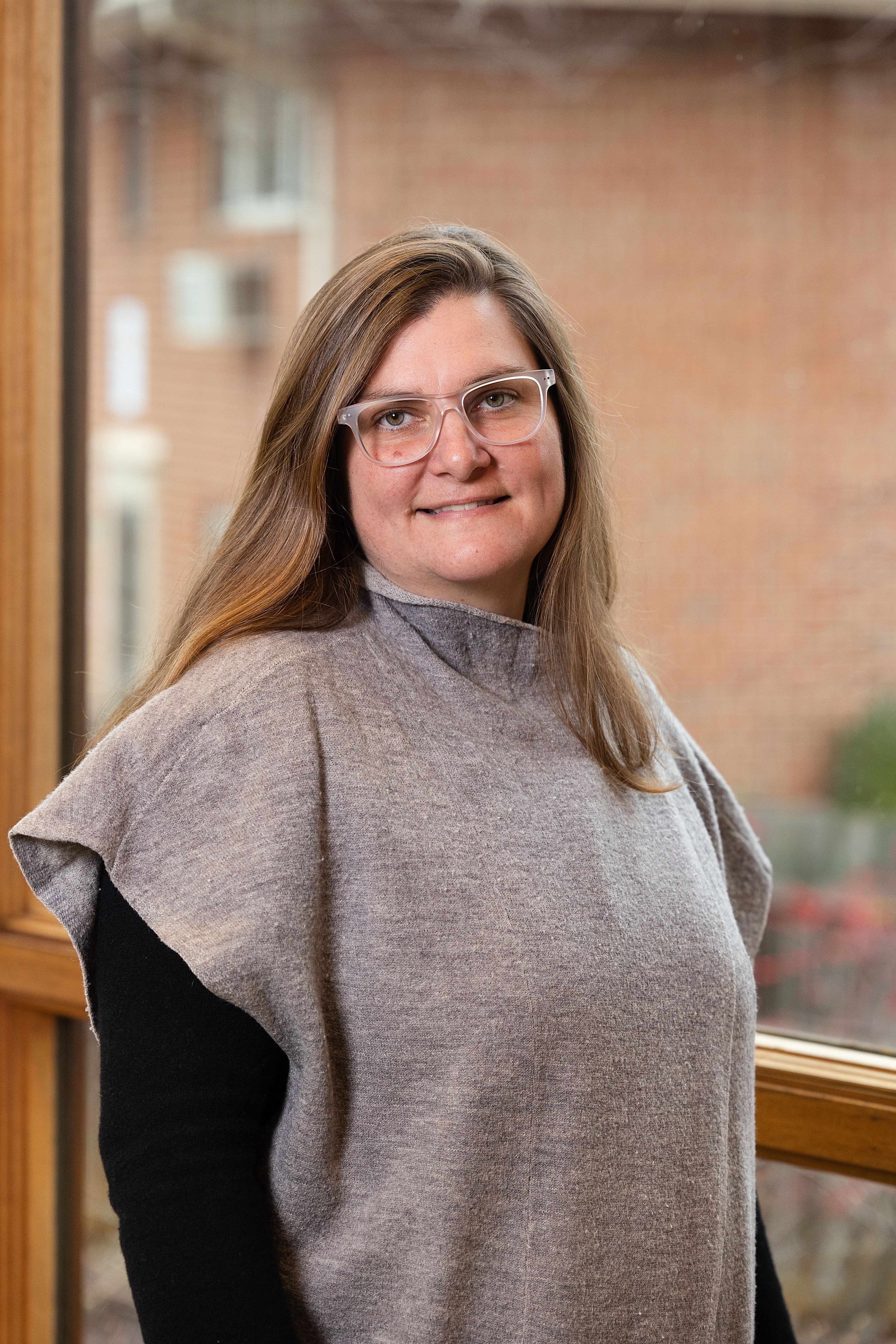
Dierksheide is the Brockman Foundation Jefferson Scholars Foundation Distinguished Professor at UVA.
Dierksheide is the Brockman Foundation Jefferson Scholars Foundation Distinguished Professor at UVA.
When special collections librarian Randi Flaherty decided to expand one of her research projects into a seminar for the University of Virginia School of Law, she knew exactly who to call on for help. Flaherty, who oversees special collections at UVA Law Library, had been exploring the history of the law school property, a section of UVA’s campus known as North Grounds, and was eager to bring her work into the classroom.
Centuries before UVA purchased the land on which the law school now sits, it was home to a long list of inhabitants, including farmers and enslaved laborers. It also served as a Civil War encampment and was the site of a poorhouse, where impoverished, sick, and orphaned residents lived and labored. The seminar Flaherty had in mind would require law students to investigate the historical intersections of slavery, race, land use, and law.
Enlisting the expertise of a law professor may have seemed an obvious choice to some, but Flaherty zeroed in on a rising star in UVA’s history department. She invited Christa Dierksheide, a noted Early American historian and public history advocate, to help her develop and co-teach the course.
Dierksheide, who joined UVA’s faculty in 2019, has been making a name for herself over the last three years, emerging as a formidable voice on the life and legacy of Thomas Jefferson, the Founding Era, and race and slavery—work that is particularly meaningful on a campus that has grappled for some time with how exactly to tell the story of its founder and the nation’s third president.

Dierksheide is the Brockman Foundation Jefferson Scholars Foundation Distinguished Professor at UVA.
In this brief talk, Dierksheide discusses Jefferson's belief that the living generation should have both the right and the responsibility to review and rewrite its own laws and constitution.
For UVA history professor William Hitchcock, it was not necessarily the subject matter of Dierksheide’s work that drew him to collaborate as much as it was her background in public history. Prior to joining the faculty at UVA, Dierksheide spent 10 years in the public history realm, serving as a historian at the Robert H. Smith International Center for Jefferson Studies at Monticello and contributing to the curation of several popular exhibitions at the UNESCO World Heritage Site.
Last fall, Hitchcock partnered with Dierksheide to organize an academic conference entitled Historians and the Public. Together, they managed to pull off an impressive feat, convening an all-star lineup of scholars, authors, historians, and legal experts to explore topics ranging from public policy and immigration to racial justice and technology’s role in public discourse.
The buzz surrounding Dierksheide and her work comes as no surprise to many at UVA, least of all Jimmy Wright, president of the Jefferson Scholars Foundation, an independent organization whose mission is to attract to UVA exceptionally talented students and faculty.
“On every level, Professor Dierksheide exemplifies the type of teacher and community member we aim to attract to UVA,” said Wright.
Ten years ago, the Foundation launched its Distinguished Professorship Program with the intention of recruiting talented faculty like Dierksheide across multiple fields of study. Currently, Dierksheide is one of six professors funded by the Foundation. They hold positions across the University, teaching in the College of Arts & Sciences, the School of Education and Human Development, the Darden School of Business, the Law School, the McIntire School of Commerce, and the School of Medicine.
With funding to support the effort now in excess of $169 million, active searches are underway for seven more professorship holders. In time, and with continued fundraising success, the Foundation expects to support as many as 25-30 professors at UVA.
“The purpose of this program,” Wright explained, “is to attract individuals who are not only exceptional classroom teachers and outstanding researchers, but also versatile scholars who embrace interdisciplinary collaboration and recognize its value to the creation of new knowledge.”
Dierksheide clearly fits the bill.
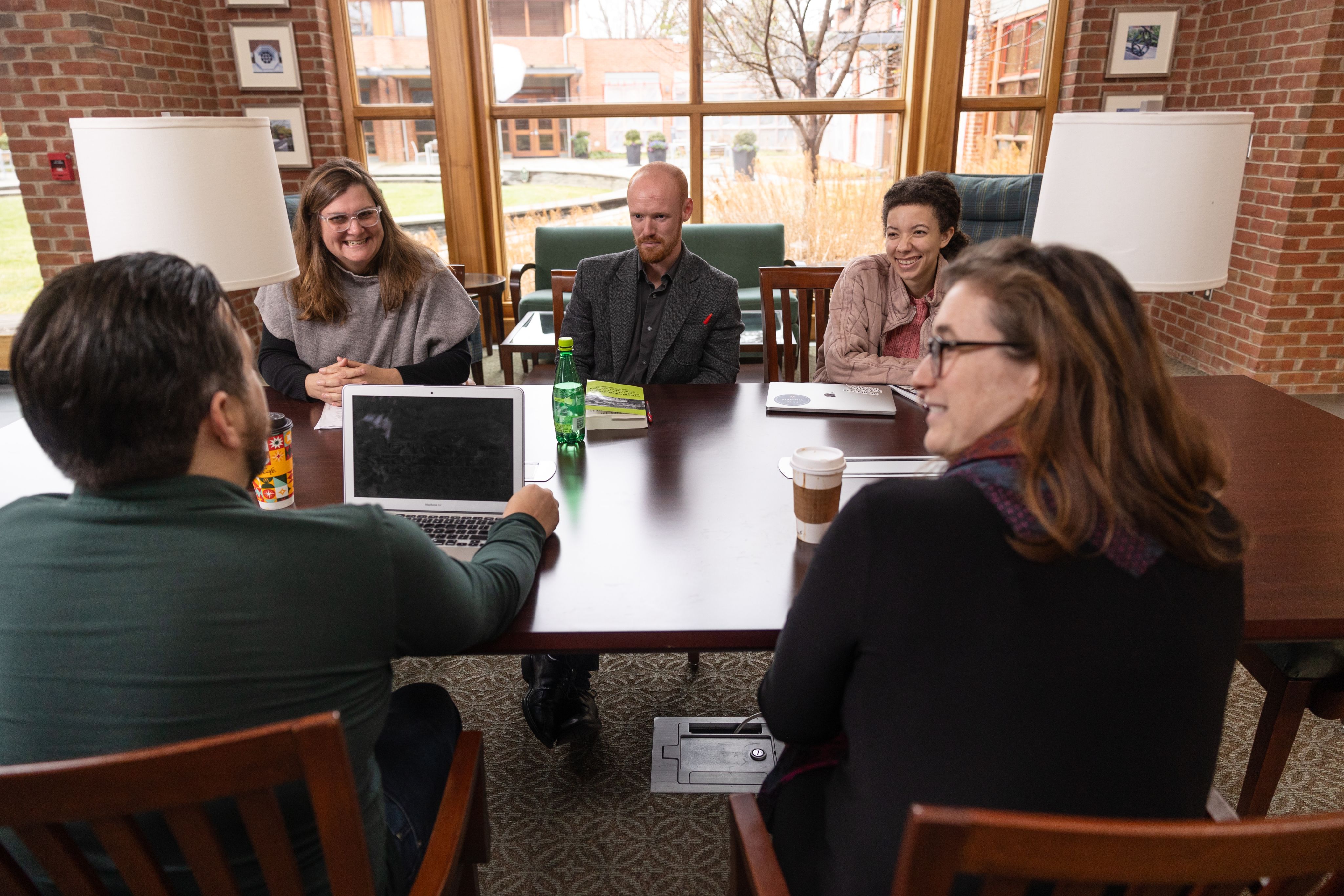
Dierksheide oversees several graduate fellows as director of the Center for the Study of the Age of Jefferson.
Dierksheide oversees several graduate fellows as director of the Center for the Study of the Age of Jefferson.
“For me, the real draw to come to UVA was that, with the Jefferson Scholars Foundation’s support, I would have the opportunity to think creatively about graduate education.”
One of the benefits Foundation-funded professors receive also happens to be one of the reasons Dierksheide views the professorship as integral to her work. Distinguished Professors funded by the Foundation receive full support for up to two graduate fellows to work alongside them. In Dierksheide’s case, she receives support for six. In addition to her teaching load, research, and collaborations across the University, Dierksheide serves as the inaugural director of the Foundation’s new Center for the Study of the Age of Jefferson, where she is given the opportunity to mentor and train a cohort of five graduate fellows and one post-doctoral fellow.
“The opportunity to teach Early American history at a place founded by Thomas Jefferson was, of course, a huge appeal and draw,” Dierksheide said. “But for me, the real draw to come to UVA was that, with the Jefferson Scholars Foundation’s support, I would have the opportunity to think creatively about graduate education.”
In Dierksheide’s view, the biggest issue facing graduate education today, particularly in the humanities, is the absence of tenure-track jobs. So, under her direction, the Center embraces a new approach to training the next generation of Early Americanists and gives students opportunities to expand their expertise in a wide variety of methodologies, including digital history, material culture, and public history.
“When we set out to launch the Center, I asked myself: ‘How can we better prepare graduate students for the job market? What kinds of skills can we impart to them? How can we give them the time and space to complete their dissertations?’”
Dierksheide had no shortage of ideas.
The Center offers a variety of public history fellowships that allow students to gain useful skills outside of academia, including exhibition design, documentary editing, digital and oral history, and even fundraising and nonprofit management.
“All of these are critical skills in the world of museums and historic sites,” says Dierksheide, “so I want to meet the demand by giving students this experience and expertise before they get their Ph.D.s. There’s no need for them to have to hack it or try to get these skills on the fly.”
One issue that faces graduate students at many universities, Dierksheide explains, is the lack of opportunity to design courses and teach autonomously. Dierksheide’s response was to create a teaching fellowship. This nine-month fellowship supports an ABD Ph.D. candidate in history and gives them the resources to teach their own undergraduate seminar.
“We are providing independent teaching experience to these fellows, an opportunity that will help prepare them for the next step in their careers, whatever that may be.” said Dierksheide.
Perhaps most notably, Dierksheide has designed a postdoctoral fellowship that bridges more effectively the graduate student experience and the faculty experience.
“Most postdocs only provide two years of funding and maybe an office,” said Dierksheide. “I wanted to design the Center’s postdoctoral fellowship with a full slate of benefits, including professional development and practical training.”
Dierksheide partnered with UVA Press to offer manuscript workshops for the Center’s postdocs. They also receive one-on-one mentoring from Dierksheide and other faculty, and have an opportunity to co-teach a course with her.
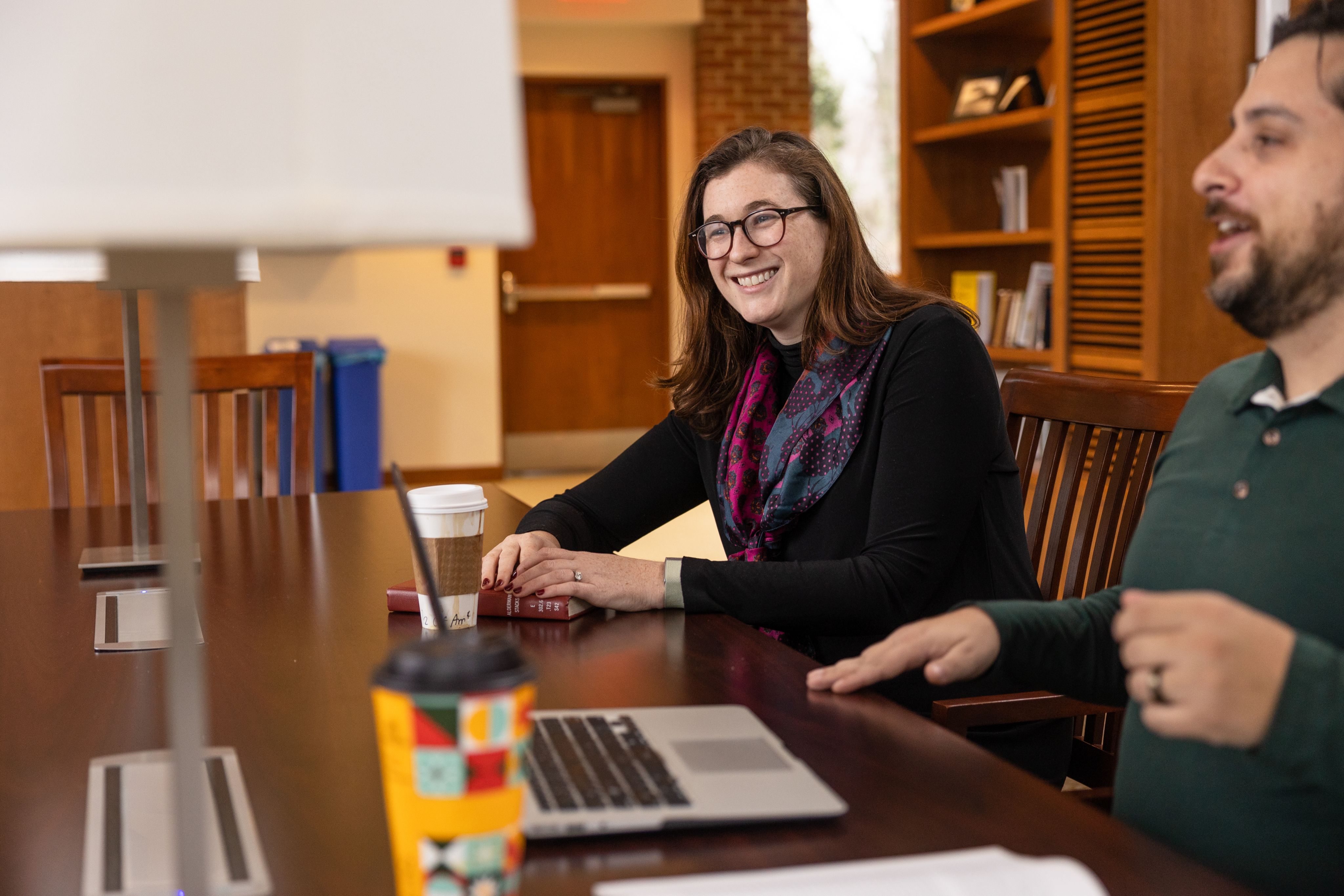
Alyssa Penick is the Age of Jefferson Postdoctoral Fellow and is a historian of law, religion, and society in Early America.
Alyssa Penick is the Age of Jefferson Postdoctoral Fellow and is a historian of law, religion, and society in Early America.
Ultimately, Dierksheide hopes to continue taking an innovative approach to training the next generation of historians, and with the Jefferson Scholars Foundation’s support behind her, she is confident she will do just that.
For Wright, he believes the power of Dierksheide’s collaborative spirit and eagerness to innovate cannot be overstated. “If Professor Dierksheide’s impact on the University community is any indication, I have no doubt that the ripple effect of the Foundation’s professorship program will reach far into the future.”
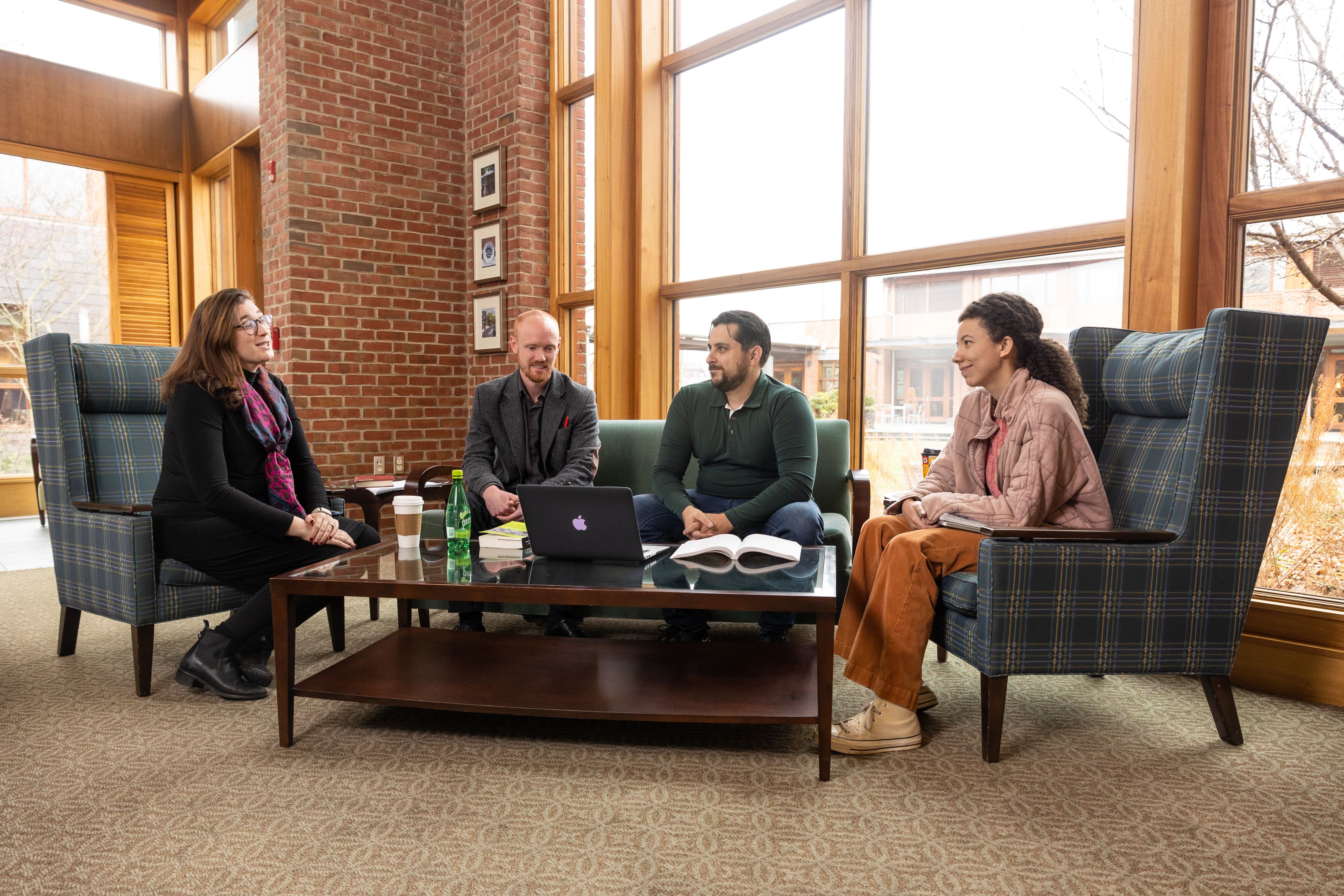

Learn more about the Jefferson Scholars Foundation’s Distinguished Professorship Program here. This content was paid for and created by Jefferson Scholars Foundation. The editorial staff of The Chronicle had no role in its preparation. Find out more about paid content.


